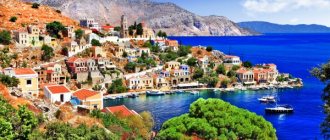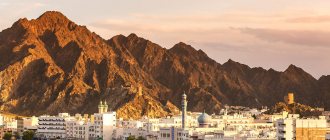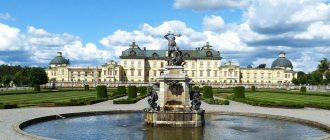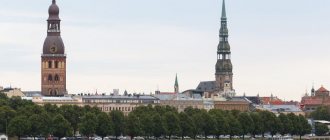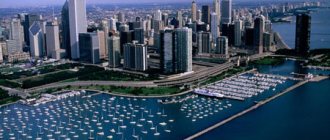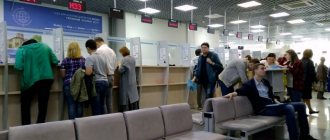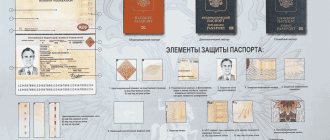How is life in Holland today?
The Dutch economy is the sixth largest among the EU countries. The kingdom's EU neighbors are Germany and Belgium. The proximity to such developed European powers further contributes to the development of the Dutch economy.
The territory of the Netherlands is small - 41,543 km², and in terms of area it ranks 131st in the world. But the kingdom's possessions are not limited to continental Holland. It consists of numerous islands in the Caribbean. The total population of the Netherlands (including islands) is just under 18 million people. Each Dutch person contributes almost $49,000 in gross domestic product, placing their homeland in 17th place in the world.
To understand the standard of living in the country, here are a few figures. The Dutch live on average 81 years. There are few unemployed people in the country; in 2018, there were only 4.4% of the country’s total working population. The average gross salary is 2855 euros, and the minimum wage in 2021 is fixed by law at 1595 euros. The income tax is progressive, with a minimum rate of 8.9% and a maximum rate of almost 52%.
Official statistics claim that today nearly 65 thousand natives of the CIS countries live in the Netherlands. Every third of them is Russian. There are approximately the same number of Ukrainians in Holland.
Russian immigrants usually settle in the eastern part of the Netherlands. The official capital of the country, Amsterdam, as well as other large cities: Rotterdam, The Hague, and Utrecht can boast the largest number of living Russians. In 2021, every fifth resident of the country is an immigrant. 60% of them come from the Maghreb countries and Turkey. In the last decade, migration traffic to Holland has increased significantly. In this regard, the Dutch authorities were forced to introduce significant restrictions for immigrants. Just a decade ago, Holland was considered the best country in the European Union for immigrants. Today, the situation has changed somewhat, and becoming a Dutch resident for a Russian, like any non-EU immigrant, is not nearly as easy as before. Good reasons will be required.
Most Russian immigrants live in Amsterdam and other big cities in Holland
My classmate Denis moved to the Netherlands two years after graduation, 15 years ago. Finding a good job in the kingdom was difficult both then and now. Denis got a job as a guide and took tourist groups from the CIS countries to the sights of Amsterdam and its environs. The young Russian’s naturalization process went without a hitch. Today he has long been a citizen of the Netherlands, which, by the way, he is proud of. While living in the Netherlands, he started a family and also invited his sister, who today also has a Dutch passport. In the first years of living in Holland, Denis was surprised by many things. The Dutch are very tolerant of people of other nationalities. They are calm about everything that does not violate the law. Denis did not know Dutch, but spoke English well. And that was enough. Almost all Dutch speak it perfectly, although in everyday life, naturally, they speak their native language. Not all store salespeople, managers and technical staff represented by foreign labor migrants speak Dutch. Denis says that immigrating to Holland from Russia in 2021 is several times more difficult than it was 15 years ago. Immigration rules have become stricter and selectivity has emerged. This was largely facilitated by the invasion of migrants from Africa and the Middle East, who strive to get to Holland by any means. For example, representatives of more than 180 nationalities live in Amsterdam. Not everywhere in Europe there is such a tolerant attitude towards such guests as in the Netherlands.
The majority of Russians who moved are highly skilled labor migrants. There are also many Russian students in Holland.
Holland is distinguished from other EU countries by the large number of illegal immigrants living and working within its borders. Even the all-seeing police eye is not able to completely control the traffic of illegal migrants. The fight against it is being carried out by the Dutch migration police with varying degrees of success. Almost no country in the European Union has such a high percentage of illegal immigrants living in relation to the total number of inhabitants.
Illegal migrants are a big problem in the Netherlands
How to move to Amsterdam
The fish looks for where it is deeper, and the person looks for where it is better. You can’t argue with folk wisdom, which is why many citizens seek to move to live in a country with a high standard of living, such as Sweden, Denmark or the Netherlands.
Not only political immigrants, but also people who are quite financially secure are trying to get into these countries. According to official statistics, about one million people who moved permanently to these three countries come from fairly prosperous countries such as Germany, Belgium, Canada and the USA.
Emigration and immigration policy
The Netherlands or Holland has always positioned itself as a tolerant country and the freest of the states of the European Union; until recently, this was fully reflected in its rather liberal emigration legislation.
This policy led to the fact that the Netherlands for a long time remained the number one country for refugees and political immigrants from all over the world and, ultimately, of the sixteen and a half million citizens of the state, 40% are former foreigners.
In 2000, the immigration policy of the Netherlands underwent significant changes towards tightening; only two other countries have such a policy - Ireland and Monaco. Today, a person who does not need social assistance from the state and has confirmed his financial solvency and independence can obtain the right to reside in the country or Dutch citizenship.
Conditions for obtaining the right of residence in the Netherlands
Dutch tolerance and freedom in no case becomes anarchy and permissiveness; along with enormous rights, citizens applying for a residence permit must meet clear criteria and fulfill all the obligations imposed on them by the current legislation.
In other words, to live in the Netherlands you must confirm your financial capabilities with a bank account statement, have a permanent source of income in the Netherlands (at least for the next three years), and conditions for living in the country (preferably real estate).
Opportunities for obtaining a residence permit in the Netherlands
To obtain Dutch citizenship, you first need to have permanent resident status, in other words, obtain a residence permit.
This permit is issued for a period of one year, three or five years, after a five-year period, if your status has not changed, there have been no problems with the law, and you have not applied for subsidies from the state, then citizenship or a permanent residence permit can be obtained without problems .
There are five main ways to obtain a residence permit in the Netherlands:
- Intimate relationship (marriage) with a Dutch citizen In the Netherlands, same-sex marriage is officially permitted, but in order to obtain a residence permit in this way, your partner must confirm that he has a regular monthly income of at least 1,500.00 EUR, and must have been a citizen of the Netherlands or had a permanent permit for residence in this country.
In the event of divorce, the conditions are considered violated, the residence permit is canceled, and you will have to return to your homeland. - Business immigration. You can organize a business in the Netherlands if you have sufficient personal financial resources to open and develop your own business; in addition, you must confirm your experience in a similar business (presence of a similar business in another country, diplomas, transcripts, etc.)
Apply for a residence permit You can after one year from the date of registration of the company, provided that the annual income exceeds 12,000.00 EUR, taking into account the payment of all taxes. - Contract job. Obtaining a residence permit in connection with contract work is possible only if there is a specific employer who is willing to pay you a salary of at least 35,000.00 EUR (for persons under 30 years old), 48,000.00 EUR (for persons 30 years of age and older).
In this case, a prerequisite is fluency in a foreign language (English), how much your specialty is in demand in the Dutch labor market, as well as professional skills and experience. - Student visa Probably one of the simplest and relatively inexpensive ways to obtain a residence permit is a student visa.
However, it should be remembered that such a visa is issued only for the period of study at the university; upon graduation, you must either provide a work contract or return to your homeland. Obtaining higher education in the Netherlands will cost from 10,000 to 15,000.00 EUR per year, plus confirmation of sufficient funds for living in the Netherlands. - Residence permit for EU citizens Even if you have the right of residence in one of the countries of the European Union, you do not have the right of permanent residence in the Netherlands.
To obtain permanent residence status in the Netherlands, you will need to provide documents that explain your stay in the country: a contract with an employer, obtaining higher education, having a business in the country or living with a permanent partner who has the right of residence in the Netherlands.Even one of the listed conditions will greatly simplify obtaining a residence permit in the Netherlands.
Advantages and disadvantages of moving to Holland
Immigration to Holland itself contains more pros than cons. The main advantages of moving are, of course, related to the high standard of living in the country and the ability of immigrants to self-realize in the Kingdom of the Netherlands. Among the advantages also worth mentioning:
- the right to legal employment in Holland, as well as in other European countries;
- obtaining a quality education at the European level;
- the right to bring your family with you;
- the right to register and conduct business, invest money in the economy of the kingdom;
- the ability to purchase vehicles and real estate without restrictions;
- the possibility of cooperation with European financial organizations in obtaining loans at minimal interest rates;
- the right to further naturalization and eventually obtain Dutch citizenship;
- high-class medical care;
- the ability to freely cross the borders of European countries.
Of course, each emigrant sees something different in moving, so we have only mentioned general trends. But we should not forget that moving to another country also has a flip side to the coin. There are few disadvantages to immigrating to the Netherlands, but they can be quite significant:
- Living in Holland is very expensive. It is almost impossible to purchase housing somewhere, even on the outskirts of Amsterdam, by selling an apartment in the center of Moscow or St. Petersburg. You will have to apply for a mortgage loan. Holland is not one of the countries where you can live on 50 euros a day without denying yourself anything;
- Obtaining a residence permit in the kingdom is quite difficult. There needs to be a good reason for this;
- Dutch is not one of the most widely spoken languages in the world, so it is quite difficult to learn it before immigrating to this country, since there are very few Dutch language courses in Russia;
- there are quite a few compatriots in the Netherlands when compared with other EU countries;
- the Dutch mentality is significantly different from the Russian one;
- In Holland it is almost impossible to find a vacancy designed for unskilled labor. Only highly qualified specialists are in demand.
The Dutch government has spent a lot of money on social support for immigrants for many years. As a result, this began to negatively affect the growth rate of the local economy. Therefore, the main criterion when selecting foreigners who are granted residence rights is their financial solvency. A potential migrant must have his own funds, which will allow him to independently provide for himself and his family, make all necessary contributions to the state budget and not use government subsidies.
Video: interesting facts about the Netherlands and why this country is called Holland
How to go for permanent residence in the Netherlands
The Netherlands, often informally called Holland, is a country of flowers and freedom. Dutch tolerance and tolerance towards different social groups is known all over the world - together with a high standard of living, this makes the Netherlands very attractive for those who decide to look for a better life somewhere abroad.
The Netherlands proudly bears the status of the freest state in the European Union. Of course, this does not mean chaos in the legislation - and leaving for permanent residence in this country is not as easy as it might seem at first glance. But still, emigrating to the Netherlands is easier than to India, which BusinessTimes wrote about in previous materials. Therefore, if you have chosen the Netherlands for yourself and are now looking for information about obtaining permanent residence status in this country, we can say that you are lucky - your move is quite real and depends on how much effort you are willing to spend on it.
The first step for those who decide to move to the Netherlands is to obtain temporary resident status. There are several reasons for obtaining a residence permit in the Netherlands:
- study in one of the accredited educational institutions of the country - work in the Netherlands under a contract - treatment - care for relatives permanently residing in the Netherlands and in need of care; — own business in the Netherlands;
Foreigners who first came to the Netherlands as students have a good chance of staying there forever - according to Dutch law, after receiving a diploma, a Dutch student has the right to stay in the country with permanent residence status for six months or a year in order to find a permanent job in the Netherlands. Therefore, BusinessTimes especially recommends paying attention to this path - both learn and get a real opportunity for professional emigration.
Residence permit status is usually issued for a year, three years or five years. If during this time you have not committed any criminal offenses, do not have administrative fines of more than 450 euros, you have the means to live in the Netherlands and there are still grounds for staying in the country, your residence permit status will be extended. After five years in this status, you will be able to obtain permanent residence status - an indefinite residence permit in the country.
Of course, as in almost all European Union countries, residence permit status in the Netherlands can be obtained by opening your own business in this country - BusinessTimes will definitely tell you about the details of this route of emigration to the Netherlands in one of the following materials. For now, let's say that the income of your company must be at least 1000 euros per month - to confirm that the company is really active.
Owning real estate in the Netherlands is not the basis for a residence permit, but getting a job there is a very good way to emigrate, but in practice it is extremely difficult to do. This option is good because, firstly, it immediately provides residence permit status. Secondly, the level of salaries in the Netherlands is very high: the average salary is about 35 thousand euros per year. But you can apply for a residence permit only when you already have a specific employer, about which he must send a corresponding request to the embassy - to find such an employer, you must be fluent in languages (English, and, very preferably, Dutch), have a higher education , work experience in your specialty and any achievements at your job - i.e. be a sought-after specialist who can compete with Dutch applicants. BusinessTimes will tell you which specialists (including foreign ones) are most in demand on the Dutch labor market in a separate article.
Finally, with regard to Dutch citizenship, you can apply for Dutch citizenship after 5 years of living in the country as a residence permit. The main thing is to live in the country legally all this time, and regularly renew the residence permit from year to year without interruption. Otherwise, the countdown of the five-year period will begin again.
Main routes of immigration to Holland
Immigration laws in the Netherlands are no fundamentally different from other EU countries. Therefore, you can move to this amazing country using the methods that are relevant in both Germany and Belgium. But the conditions for some categories of immigrants may differ slightly.
I had to literally reshape my brain and perception of the surrounding reality. At first I was generally afraid of people. Everyone had the same smile on their face and goodwill aroused suspicion. It was absolutely impossible to understand what was on their minds. It's discouraging, to be honest. The language barrier caused a feeling of acute isolation. Ignorance of local rules, laws, procedures and traditions only increased the feeling of anxiety, uncertainty and insecurity. Moral and financial dependence on the husband. So the first six months were very difficult. But when I took language courses and got a job, everything began to improve quite quickly. And after a year I felt like a full-fledged person in the full sense of the word))))
kira_489
https://pora-valit.livejournal.com/1072401.html
Relocation during employment
Any labor migrant from Russia or another country who has an invitation to work from a Dutch employer and a valid contract with him can obtain a residence permit. Illegal work is prosecuted and can lead not only to a large fine, but also further deportation with an entry ban for several years.
Official employment of a third-country citizen is possible only if none of the Dutch or EU citizens agreed to do the work or met any criteria. And this is not the desire of the employer, but a requirement of European labor legislation, which also applies in Holland. In this case, information about available vacancies must be posted in accessible media, and also declared at the local employment service. Considering that wages in the Netherlands are higher than the European average, citizens of other EU countries do not miss the opportunity to move to Holland and earn good money. The main argument for Dutch employers when hiring a Russian specialist will be more modest wage requirements.
The minimum wage in Holland varies depending on the age of the employee. Those who are under 30 years old are paid a minimum of 35 thousand euros per year. The salary of an older employee cannot be less than 48 thousand euros per year.
A migrant worker can obtain a residence permit for a period of no more than a year, then there is the possibility of extending it several times. The law requires that all costs of legalizing an employee be borne by the company hiring him. Under the Blue Card program of the European Union, sought-after specialists can obtain a residence permit immediately for a period of two years.
Video: work in Holland
Business immigration
The development and stability of the Dutch economy naturally attracts many foreign entrepreneurs. For foreign businessmen, the Dutch authorities have provided two types of residence permits:
- Regular residence permit. It is issued upon registration of a company in the Netherlands or the acquisition of at least a quarter of the shares of an existing enterprise. The area of work should be of interest to the Dutch authorities and contribute to the development of the country's economy. The applicant must have at least three years of entrepreneurial experience and a business plan. The validity of the residence permit will initially be one year.
- A startup visa is similar to a residence permit. It is available to foreign entrepreneurs who have provided promising innovative projects. First, an expert assessment of the project takes place by a special commission under the above-mentioned Ministry. If its potential effectiveness is recognized, the author of the project has the right to register his own company or acquire part of an existing business. The difference from the previous type of residence permit is that the Dutch state is ready to provide a foreign entrepreneur with an interest-free loan for the implementation of a project and the most favorable conditions for legalization. But the activities of the enterprise will be much more strictly controlled by local authorities. The startup visa is initially issued for two years with the right to extend.
Investment
A residence permit in the Netherlands can be granted to large foreign, including Russian, investors who are ready to inject at least 1 million 250 thousand euros into the country's economy.
The first step should be submitting an application to the relevant Ministry of the Netherlands. After a positive verdict, the potential investor receives the right to deposit funds and obtain a residence permit. A necessary condition is that the investment has been operating in the Dutch economy for at least five years. The investor must renew the residence permit within a year. After a five-year period (subject to meeting investment requirements), it is possible to request permanent residence and subsequently apply for citizenship.
Particularly large investors can be legalized in the Netherlands on preferential terms, immediately receiving permanent residence, and in some cases, citizenship.
Moving to study
You can enroll in a Dutch higher education institution in person or remotely. The basis for requesting a residence permit will be an invitation from the higher educational institution in which the student is enrolled. In addition, the university administration must sign a training contract with him.
There are no requirements for the student’s age, since in the Netherlands they study at both 18 and 50 years old. It will not surprise anyone if among the students there are people of pre-retirement and even retirement age.
With an invitation from the university and a study contract, the newly minted student applies to the kingdom’s immigration service with a request to issue him a residence permit. The status will be valid for a year, after which it will need to be extended. This is possible only on the basis of a petition from the administration of the university where the student is studying. This will confirm that he has continued his studies by moving to the next course. For foreign students, the years spent at a Dutch university will be fully counted towards the period required for naturalization. In addition, foreign students have the right to work part-time during the academic year and during the holidays.
Studying in Holland is very popular among Russians
Immigration to Holland to join relatives
If a Russian citizen has relatives living in Holland who have citizenship or permanent resident status, then he has the right to move in with them on the basis of an invitation. The invitation is issued by Dutch relatives, confirming it with documents proving the presence of closely related ties. The family unification immigration program provides for the participation of only close relatives - parents, children, brothers and sisters. After moving, those invited can apply for a residence permit for a year, and then renew it annually for up to five years. After this period, you can apply for permanent residence.
Family relationship with a Dutch citizen
Marriage to a Dutch citizen means an unconditional right to further legalization in the country. In relation to foreign spouses of their citizens, Dutch laws are much more flexible than in other European countries. In particular, there is no need to live permanently in Holland. It is enough for a young family to register relations on its territory. If the marriage took place outside the Dutch borders, the document will require legalization.
At least three years must pass from the date of marriage until the foreign spouse becomes a citizen of the kingdom. The first three years of marriage will be spent as a permanent resident of the country.
The Netherlands also recognizes such an institution as a registered partnership. It gives slightly different rights from traditional marriage, but in terms of immigration there is no difference. Dutch laws are tolerant of same-sex marriage, which results in legal consequences similar to traditional marriage.
Marriage to a Dutchman means an unconditional right to further legalization in the country
Medicine with a local flavor. Most Dutch people are as healthy as horses, so the doctor’s first recommendation for all illnesses is to rest, it will go away on its own (I don’t rule out that doctors are also worried because insurance companies are giving them a hard time). The typical solution is to exaggerate the symptoms and timing by half. It works well.
snowdrop
https://snowdrop.livejournal.com/172337.html
Immigration for refugees
The Netherlands, like the rest of the European Union, has adopted quotas for accepting refugees from African and Middle Eastern countries. The procedure for granting refugee status in Holland, as in other EU countries, is almost the same. Refugees are entitled to social assistance from the state, and are also given the opportunity for further naturalization.
The vast majority of refugees in Holland today come from Africa and the Middle East. It is quite difficult for Russians to officially become refugees in the Netherlands. Status can be obtained when it is possible to document that forced migrants are in danger in their home country due to religious or political persecution. The basis for a refugee request may also be sexual discrimination. Holland is a target for representatives of sexual minorities from the CIS countries quite often. History knows many examples when a request for asylum by representatives of this category of forced migrants received a positive response.
Refugee status in Holland is granted for five years. A significant advantage is that it does not need to be renewed periodically. After five years, immigration authorities monitor the situation in the refugee’s home country. If it does not change for the better, then the refugee officially becomes a permanent resident of Holland and in the future can count on its citizenship.
In the Netherlands, refugees are first sent to special camps
Certain cases of obtaining a residence permit
Persons who are officially recognized as victims of human trafficking can obtain a residence permit. Residence is available to them if they live in Holland and participate in the investigation of crimes related to this shameful phenomenon.
Residence permits can be obtained by volunteers who take part in international humanitarian programs. It is issued based on the relationship from the administration of the humanitarian mission. The validity period of the residence permit will be equivalent to the volunteer's expected stay in the Netherlands or one year. If the volunteer continues to work as part of the mission, the residence permit may be extended.
The authorities of the kingdom willingly provide resident status to foreign scientists, researchers, cultural figures, and athletes. In this case, the status is assigned by a special government order.
The use of soft drugs is indeed legal in Holland. There are special places for this called coffee shops. I don’t know why you had to hide behind coffee if it’s allowed! So they would be called “Marijuana Paradise”! “Nirvana and marijuana”! I'm really creative! And that’s basically it! Nowhere else Officially! they don't sell weed! And they sell it illegally not only in Holland, but absolutely everywhere. Moreover, stores here won’t even sell non-alcoholic beer to people under 18 years of age! Therefore, my worries about the fact that almost every third person is a drug addict and that at every turn they will offer a pie with weed are absolutely groundless.
MIRINA
https://goodtobemom.com/jizni-v-gollandii-bez-isterii/
Methods of immigration from Russia to Holland
There are several ways to move to Holland. Each has its own specific package of documents and a number of nuances that emigrants must comply with. Let's find out which method is most noteworthy in your case.
Education
Students most often go to Holland to study. Obtaining a student visa is one of the popular justifications for moving. Firstly, it is very convenient, since the package of documents is standard; only an invitation from the educational institution is added.
Secondly, the citizen receives permission to live in Holland for the entire period of study, the main thing is that it does not exceed 5 years.
If the duration of study exceeds 5 years, for example, a citizen decides to enroll in graduate school after basic studies, he will simply need to renew his visa every year.
Also, no one prohibits a student from carrying out work activities during extracurricular activities.
In order to obtain permanent residence, a student must graduate from a higher educational institution and live in the country for another six months. Also, the basic rule is that the student must find an official job in his specialty.
Combining study and work
Combining study and work is also possible. However, this still requires a student visa. But there are a number of nuances here. If a citizen wants to combine his work and mental activities, then he must follow some rules. For example, the number of working hours should not exceed 10 per week. Therefore, students prefer to get jobs as waiters, bartenders or shift salesmen.
However, in the summer, when students have official holidays, that is, from June 1 to August 31, these citizens are allowed to work full time.
Employment
The next reason for moving is, of course, employment. According to the ratings of many leading publications, Holland is a comfortable region in which to carry out one’s work activities, and therefore to migrate for this reason. There are a huge number of vacancies on the labor market, which also apply to visitors. The average salary is 3,000 euros per month, which in itself is not so little.
Expatriates from Russia are advised to choose large cities for living, for example Utrecht, Amsterdam, Rotterdam. The offices of large European companies are also located here, which prefer to choose specialists not only from Holland, but also from other countries.
By the way, in order to get a job in Holland you do not need to know the language. There are many specialties that require the possibility of working without knowing the appropriate language.
A work visa is filled out according to a simplified procedure. However, here each individual document will be considered individually.
And if you managed to conclude a work permit with the company, you will need to submit the appropriate package of documents.
However, if the employer is interested in you, he may take upon himself the need to fill out the paperwork.
Also, employment is only possible if it is full-time and the salary can support a family.
Business immigration
Business immigration is another common way to obtain a residence permit. This is possible if a Russian tries to register his company in Holland. However, to do this, you need to provide supporting documents that the Russian has the funds to implement such a complex project. Also, you must have a diploma of relevant education.
If the company was registered and operated for exactly one year, and generated income of more than 1,000 thousand euros, then the citizen has the right to submit documents in order to obtain a residence permit for entrepreneurs.
It is believed that government representatives are favorable to this idea, as it replenishes the state coffers.
However, you need to remember some nuances. For example, when moving to Holland in order to run your business there, you need to know the nuances of the taxation system.
For example, an entrepreneur undertakes to pay VAT, as well as income tax, the amount of which will be up to 50%.
If you have any kind of startup, carefully read the Dutch legislation on this topic. If you are the organizer of a startup, then you will need to show not only a unique product, but also provide information that you have the means to develop and sell it. In addition, already concluded agreements with intermediaries will be required.
Investing in the economy
The Dutch government also favors those citizens who want to invest in the country's economy and invest money in it. To do this, you will need to make investments totaling more than one and a half thousand euros and prove that they were earned by you legally. You will also need to obtain special permission from a business agent in the Netherlands, who can assess how beneficial your business will be to the country's economy.
The Netherlands does not encourage the possibility of purchasing a residence permit if you have purchased real estate.
Therefore, obtaining the right to obtain a residence permit is possible only by injecting funds into the economy.
Refugee
Refugee has become a popular and widespread method of migration as conflicts break out in the Middle East, from which a number of people are fleeing.
In order for a person to be recognized as a refugee, he must be in the country and also ask for protection from the migration police. It is believed that the basis for this is various persecutions based on sexual, political and religious motives.
Refugee status will be granted to a citizen who proves that his life and health are in danger. Also, refugee status is automatically assigned to members of his family.
For each individual refugee, its own proceedings are initiated, which resolves the issue of granting him asylum for a period of up to six months.
In some cases, an extended procedure may be required, which will last another six months.
People who are refugees can buy their own housing, or they can stay in a specialized center. If a positive decision is made on the refugee by the council, he will be given the opportunity to temporarily reside for a period of 5 years. At the same time, he retains the right to work and study.
Family reunification
You can become a Dutch citizen through family reunification.
To do this, you must provide documents that indicate that you, together with Dutch citizens who live in this country, are in close family ties. For example, you are each other’s children, parents, spouses, siblings.
After you have provided a document confirming the fact of kinship, you need to get in line for family reunification. As a rule, this procedure is not quick and lasts for months and sometimes years.
General scheme for naturalization
The first thing an immigrant must do is apply for a visa. A Russian can obtain a visa at the Dutch embassy in Moscow by first registering and submitting an application. The response, which should be sent to the applicant’s email, will contain information about the time when he will be expected at the diplomatic mission. Residents of the regions can obtain a visa by contacting the joint visa centers. In this case, you should inquire about the region within the jurisdiction of the center and whether it is possible to obtain a visa of the requested category there or whether you will only have to contact the embassy for this.
Secondly, you should start obtaining a residence permit. This can be done in the Netherlands itself by contacting the IND immigration service. It is represented in every Dutch city and is usually located at the police department. You must first submit an online application.
A Dutch residence permit is a plastic card with the owner’s biometric information
Upon arrival in the country, it was necessary to obtain a residence permit, register at the place of residence, and take a test for tuberculosis. Get a 30% discount on taxes for the first 10 years - with it, with the same gross salary, you will receive much more money in your hands (much more). Given to almost all foreigners who come to work (with some restrictions, if interested, I can tell you about it). That's it, now you are a white man and can live in the Netherlands until the end of your employment contract. After that, it will be extended, and your residence permit will be extended along with it.
dimitriyremerov
https://forum.awd.ru/viewtopic.php?f=1429&t=173177&attempt=1
For most foreigners, the residence permit is initially valid for one year. It can be extended if there are sufficient grounds for this.
A foreign citizen can become a permanent resident of the Netherlands if he has lived in this country for at least five years with a residence permit. For certain categories this period may be reduced. The status does not expire, but must be renewed every ten years. Permanent residence can be obtained only after successful testing of knowledge of the Dutch language and integration into society and, of course, if there is a basis for its request.
After five years, a permanent resident of the Netherlands has the right to become a subject of His Majesty Willem-Alexander (King of the Netherlands).
After five years, a permanent resident of the Netherlands has the right to become a subject of His Majesty Willem-Alexander
So, the total duration of the period from obtaining a residence permit to obtaining a Dutch passport will be at least ten years (with the exception of foreign spouses of Dutch nationals).
Residence permit in the Netherlands
Contact us
Holland is one of the most densely populated countries in Europe, so the flow of people wishing to become subjects of the kingdom is strictly regulated. However, with thoughtful preparation and the help of competent specialists, obtaining EU citizenship through a Dutch passport is absolutely possible.
Benefits of immigrating to the Netherlands:
- European passport - which means the right to freely, without restrictions, live, study and legally work in EU countries;
- Opportunity to find a job without additional papers and permits;
- Possibility to store savings in the largest European banks;
- Favorable tax conditions for entrepreneurs;
- High-quality and affordable medical services.
Residence permit in the Netherlands
The current rules of migration policy are regulated by the Law on Foreigners of November 23, 2000 and the Decree on Foreign Citizens of November 23, 2000.
A residence permit in the Netherlands can be obtained for 1 year and then renewed annually, exactly on the eve of receiving the first document. Violation of this rule is fraught with complications: anyone who has overstayed at least 1 day will have to return to their home country and from there apply for a new residence permit.
On what grounds can one obtain a residence permit in the Netherlands?
• Business in Holland. One year of successful operation of a company registered within the country will allow you to obtain a residence permit. In this case, the applicant must have a stable monthly income of at least 1000 euros.
• Legal work in the Netherlands. Employment involves the execution of a contract, or any document regulating the relationship between the applicant and the employer. However, the preparation of such a document involves a lot of hassle on the part of both the hired employee and the employing company.
• Study in Holland. Studying at one of the country's educational institutions, which is accredited by the Dutch Immigration and Naturalization Service (IND), gives the right to first obtain a student visa and then obtain a residence permit. Within 6 months after graduation, the graduate must either provide an employment contract and renew the residence permit, or leave Holland.
• Family reunification in the Netherlands. Applicants whose relatives are subjects of the kingdom have sufficient grounds to obtain a residence permit in Holland. This category also includes registered and common-law spouses.
• Residence permit for start-ups. According to the new government program, subject to a number of conditions, young entrepreneurs can receive an annual residence permit in exchange for the development of innovative enterprises in the country.
Note!
Purchasing real estate in Holland does not guarantee you a residence permit in Holland. But the purchase of commercial real estate, which in the future will generate a stable income, will allow you to apply for legalization in the country.
Required documents:
- Internal passport
- Birth certificate
- Certificate of registration from the State Migration Service
- Documents confirming sufficient funds in the account
- Documents that confirm the required level of income
- Medical insurance
- Certificate from the Ministry of Internal Affairs confirming no criminal record in the country of permanent residence
- Documents confirming the stated purpose of obtaining a residence permit (contract, marriage certificate, etc.)
Procedure for obtaining a Dutch residence permit
- A temporary residence permit must be obtained from the Dutch diplomatic mission in the country of permanent residence.
- Submission of a set of documents, in accordance with the stated purpose, to the office of the Immigration and Naturalization Service. The dossier is reviewed within 90 days. The applicant is informed of the decision in a letter.
If you are planning to become a full-fledged resident of Europe, successfully conduct business in the EU and ensure the safety of yourself and your family - contact us right now!
Additionally on the topic:
EU immigration
EU citizenship is an undeniable advantage not only for businessmen, but also for people who want to obtain a residence permit in one of the EU countries. With us, the process of obtaining a residence permit will be quick and with a guarantee of results. Read more…
Second EU citizenship
A complete list of programs for obtaining dual EU citizenship. All details of the process of obtaining a residence permit, permanent residence and a second passport. Qualified legal assistance in obtaining second EU citizenship with a guarantee of results. Read more…
What does the package of documents consist of?
Request for a residence permit occurs by submitting an electronic application and a package of documents, which includes:
- original foreign passport and its photocopy;
- confirmation of the applicant’s financial security (minimum 1,595 euros of income per month for the main applicant and another 50% of this amount for each dependent family member);
- rental agreement or document on ownership;
- European insurance policy (minimum 30 thousand euros);
- 4 photos (taken no later than six months before submission, passport format);
- a certificate stating that the applicant has no outstanding criminal record;
- medical certificate (confirms the absence of AIDS and tuberculosis);
- basis for requesting status (employment contract, invitation from an educational institution, etc.);
- receipt for payment of state duty.
Most categories of applicants should take care of additional documents. For example, pensioners - about their pension certificates and certificates from the pension fund, parents of minors - about their birth certificates, consents from absent parents for their offspring to receive a Dutch residence permit.
The photo for a residence permit must meet certain requirements
Details
The applicant needs to remember that:
- twenty-one days after submitting the application, payment of a specialized fee will be required, its amount depends on the purpose of entry;
— if there is a lack of documentation, the specialist will point this out. The elimination of this deficiency is urgent - within thirty days after filing the petition. If this does not happen, your visa will be refused;
— probably an invitation to an interview to clarify some nuances;
— It is important to bring the package of documents yourself.
Obtaining a residence permit
The MVV visa is not the residence permit itself in the Kingdom. The migrant will be able to obtain an equivalent permit for a residence permit on the territory of the country upon arrival there. For this purpose, the newcomer must register with the local municipality within eight days. Necessary documentation for this:
- application form - fill out;
- not expired foreign passport;
— legal grounds for stay — presence of the MVV mark in the passport or residence permit;
- own birth certificate;
- marriage certificate or statement about its absence.
Documentation must be photocopied and translated into Dutch. It may take up to two weeks for papers to be reviewed. Later, the foreign national is assigned a BSN number, which entitles him to special benefits and allowances.
Obtaining VTV - documentation granting the right to temporary residence in the state - is carried out at one of the migration departments.
Timing, cost and additional procedures
The wait for a residence permit will last a maximum of three weeks, allotted for this by local legislation.
The cost of a residence permit largely depends on the reasons for its request. The state duty in Holland is high. For foreign businessmen and investors it will be 1136 euros. A student residence permit will cost 321 euros, highly qualified labor migrants will need to pay 938 euros in state fees, and those moving to live with relatives will need to pay 902 euros.
Permanent residence status will cost from 400 to 1280 euros.
When applying for a residence permit, speaking English is sufficient, but Dutch will be required when applying for permanent residence.
An immigrant submits biometric data every time he issues a residence permit card. The fingerprinting and photographing procedure takes a few minutes and takes place directly at the IND office.
The most common reasons for refusal and the migrant’s next steps
The Dutch immigration authorities refuse residence permits quite often. Especially in recent years. It is believed that every fourth request is not granted.
Typically, this happens for the following reasons:
- the applicant does not have enough money to live, and he is forced to apply for social assistance;
- the residence permit applicant poses a potential danger to the state (connections with international criminal groups, terrorism, extremism, etc.);
- the applicant is a civil servant of another country;
- the applicant has socially dangerous diseases;
- there is an outstanding criminal record;
- the applicant submitted an incorrectly prepared package of documents, forged documents, and provided false information about himself.
There are two ways to appeal a negative decision of the authorities:
- Submit a letter of appeal to the IND. The law allocates two weeks for this.
- Take the matter to court. This can be done within two months.
The period is calculated from the moment the refusal is received. The day after this will be the first.
When considering the matter in court, one should not forget that the hearings will be held in Dutch.
The issue of refusal of a residence permit can be brought to court within two months after the refusal
